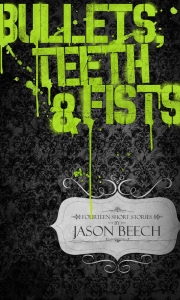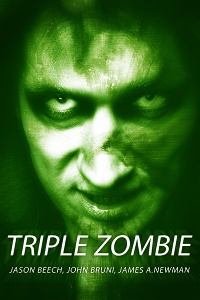
Gloves Off is a fine short story crime anthology – all dark, often brutal, and sometimes playing with your heart-strings.
It kicks off with magnificent Gareth Spark, whose All Night charts a gruff old security guard’s preparation for paying a long-held debt. Spark’s work is far more than just plot, getting us from there to over here. His characters emerge from the page from his striking use of detail, making anticipation creep up on you rather than bludgeoning you over the head. Doesn’t mean his prose is flowery. Or maybe it is, except its petals are all beef. I’ve yet to read anything rubbish from the author.
Richard Godwin’s Just Baking the Cake is another story which uses language to heighten the senses for a character’s predicament, where no matter the protagonist’s actions, he cannot escape what he is, and what others are.
Chris Leek’s Brothers Under the Bridge joins Godwin and Spark as favourites in this anthology. Of course, it involves trouble and guns, but it features a holding-the-seat-of-your-pants car chase that might force you to check your bearings. For example: “The Snake was what locals called the 421 past Boone. Here the road flipped around the mountainside like a carnival ride, diving down into huddles of dark pine that jostled for space on the narrow granite ridge.”
Pass that rag – I need to wipe away a bucket of sweat. The story is full of such details, making the whole thing 3D.
Paul D Brazill and Aidan Thorn offer a bit of British cheek while avoiding Danny Dyer British gangster clichés. They both end with funny punch lines, while still stabbing a fist in your belly. Great stuff.
The anthology has a few beautiful twists. Tom Pitts’ House Party builds pressure, makes you sweat and fret, then … I’ll let you get there. And Jim Spry’s Devils and Doughnuts is a kick in the nuts, with an ending you can’t help nodding to in agreement.
The bit of heart in Spark’s short expands in Allen Miles’ Innocent, a story that lingers long after finishing because of its terrible sense of loss compounded by harsh, unthinking judgement by others.
Ryan Sayles almost has you understanding the high school shooter, a kid treated like muck by everybody until he burns to show his rage through a rifle’s muzzle. Hard, painful fiction.
It’s not all pancakes – some stories don’t hit their target, but the ones which do, really sing.

